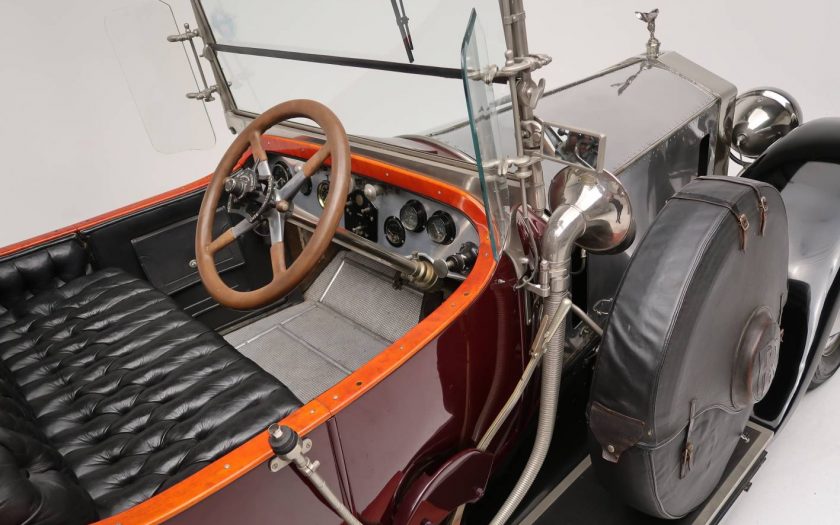NOT SO LONG AGO, Australia had a motor industry. It was given various forms of support, but none of it was enough to keep it viable and one by one, the local manufacturers packed their bags, closed their factories and moved on.
One part of that support, supposedly, was the Luxury Car Tax, introduced by the Howard government in 2000. These days, despite there no longer being a local car manufacturing industry, the LCT is still in place, gouging significant dollars from people lucky enough to be able to afford a so-called luxury car (currently, the LCT is rated at 33 percent of the value of the car over the LCT threshold – $67,525 for most vehicles, and $75,526 for fuel-efficient vehicles).
So, if for example you were to buy a luxury car priced at $175,000, the levy adds $33,000 to your total purchase price, taking it to more than $200,000.
Arguments that the tax is no longer necessary have failed to sway successive governments (when did you last hear of a tax being rescinded? – income tax was introduced in World War 1 as a temporary measure). As the VACC points out, there is no tax on luxury yachts or diamond rings because, like cars, taxes have already been applied and GST added. Only luxury cars are singled out for an additional impost.
Additionally, the threshold is so low that it ropes in many working vehicles used by farmers and tradespeople. Mitsubishi Pajeros, Toyota LandCruisers, Nissan Patrols and many others are priced well above the LCT threshold.
And it’s not just the federal government getting in for its pound of flesh; now state governments are eyeing off luxury car buyers. Victoria has hiked stamp duty of seven percent on vehicles over $100,000 and nine percent on vehicles over $150,000 to claw back revenue lost from the slowing housing market. In 2018, Queensland also levied a “premium motor vehicle duty” on cars valued at more than $100,000. Car dealers are currently taking legal advice on whether additional duties applied by state governments are lawful under the Australian constitution.
On top of all that, Australia imposes a five percent import tariff on cars imported from Europe.

But it’s not just new car buyers being penalised
The LCT is applied to any vehicle under two years old, but if the car is being sold for a second time, there’s a tax credit for the LCT paid when it was first sold (there’s no such thing as a simple government tax!) For most people, then, there will be no LCT to be levied on a second-hand car unless it has increased in value.
LCT also applies to historic vehicle imports
For no understandable reason, (apart from naked greed), the Luxury Car Tax was also applied to historic vehicles. Clearly, when it comes to historic vehicles, there never was an industry to protect.
Quite the opposite, in fact.
Historic vehicles were exempted from import duties in the 1970s (an exemption that is still in place). Consequently, Australian enthusiasts were sourcing and importing numbers of historic cars from overseas and these imported vehicles were a major part of a thriving restoration and maintenance industry. But then the Howard government introduced the 10 percent Goods and Services Tax to compensate for the abolition of the Wholesale Sales Tax and, to avoid a fall in new car prices, also introduced the Luxury Car Tax.
The GST and LCT only applied to new cars sold in Australia. But inexplicably, the LCT was also applied to cars imported, regardless of their age. This included historic cars. Meanwhile, historic cars being traded within Australia were not subject to GST or LCT.
The effect on the historic car movement has been devastating.
Australia’s historic vehicle industry is unfairly penalised by the double whammy of LCT and GST. Automotive restorers, parts vendors, motor trimmers, mechanics, retailers and many other people in the old car industry are impacted.
Australia’s historic car industry, unlike those overseas, is actually in decline, despite there being more than 600 marque car clubs and tens of thousands of enthusiasts.

The LCT on historic vehicles isn’t even very lucrative
The tax on cigarettes was introduced, in part, to dissuade people from smoking.
A similar, if unintended, consequence of the LCT has affected the historic car industry in Australia. By imposing the LCT on the importation of historic vehicles (cars over 30 years old), import numbers have plummeted and the tax has raised just $1.2 million per year, or less than one quarter of one percent of the total revenue from the LCT.
The LCT and GST combined typically add 40 percent to the landed cost of a historic vehicle but add nothing to its value once it’s in Australia. As a result, imports of high value historic cars have slowed to a trickle since 2000.

A case history
Jim Scammell is well known in vintage car circles.
In 2012 he purchased an unrestored 1935 Railton Sports Tourer in the USA for $A57,725. This car is part of Australian automotive history: the body was built new in Sydney and used there by the original owner until he returned to the UK in 1947, taking the car with him. In the early 1960s, the car was sold to a buyer in the USA.
Jim bought the car and returned it to Australia early this year via the Port of Melbourne. He was hit with $9716.71 GST and $9602.22 LCT. This added $19,319.93 (or 33.5 percent of the original purchase price).
As Jim explains, the purchase price of $57,725 was just the beginning, because as any buyer of a car overseas knows, freight, handling, GST and insurance need to be included, so the landed cost of his car is almost $90,000. And that’s before he starts restoring it!
Sign the petition
The Australian Historic Vehicle Interest Group has raised a petition to the Treasurer Josh Frydenberg to abolish the LCT on historic vehicles. At the time of writing, it has attracted more than 11,000 signatures.
It should be noted that signing the petition does not obligate you financially in any way (if a request for a donation pops up, you may like to donate, but it doesn’t make any difference if you ignore it).
seniordriveraus.com urges you to read the argument here and to sign and return the petition as early as possible.
As we said, knowing the way governments work and their addiction to revenue from any source, we doubt it will result in any significant change, but doing nothing is a far worse option.
